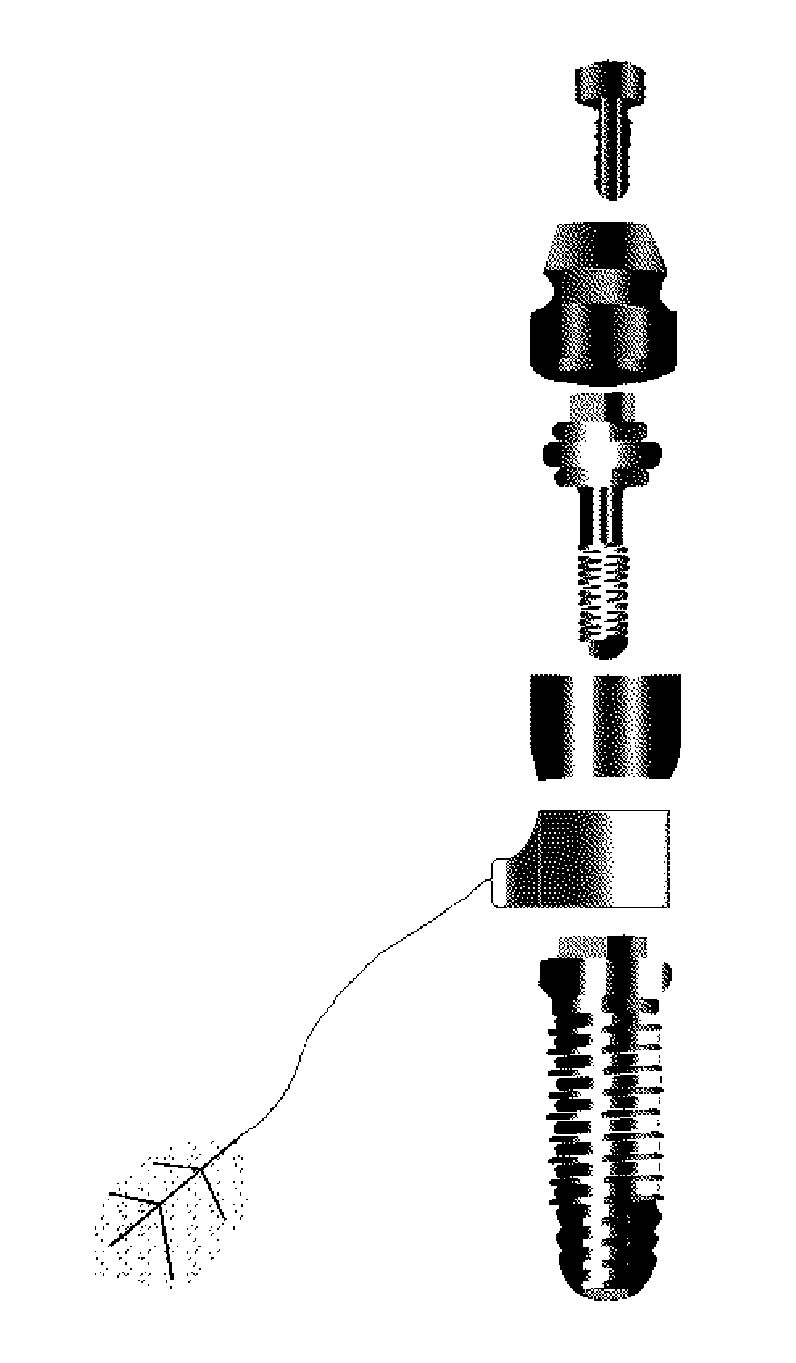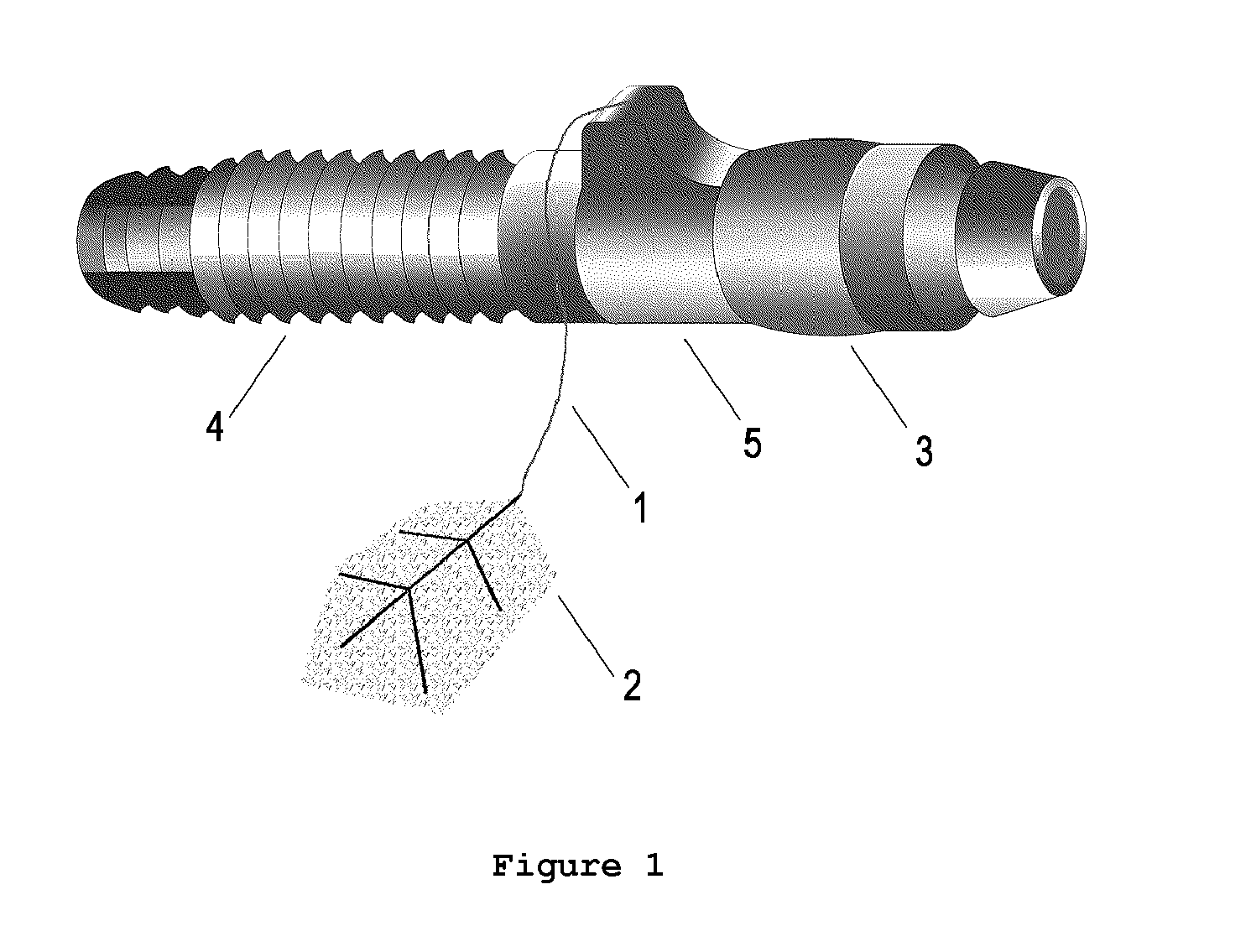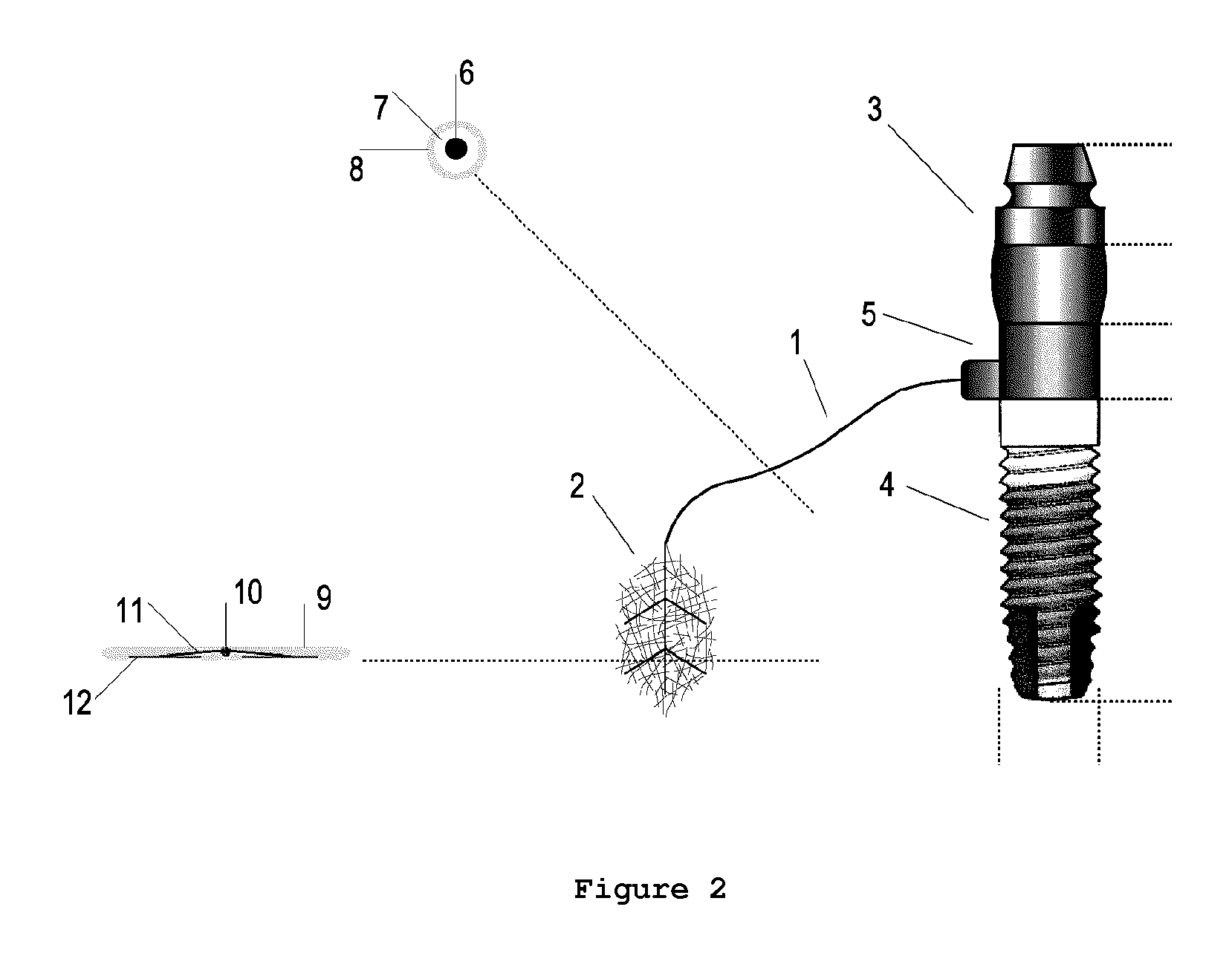Dental abutment with a force transducer interfacing with a nerve
a technology of force transducer and dental abutment, which is applied in dentistry, non-surgical orthopedic devices, medical science, etc., can solve the problems of metal and ceramic, acrylic, metal and ceramic, metal and ceramic, etc., and achieve the effect of preventing the fracture of materials used in the manufacture of prostheses and permanent damage of implanted supported prostheses
- Summary
- Abstract
- Description
- Claims
- Application Information
AI Technical Summary
Benefits of technology
Problems solved by technology
Method used
Image
Examples
Embodiment Construction
[0063]This invention represents a fundamental improvement to the majority of dental implants marketed so far as it brings the anatomical replacement devices (fixed prosthesis over dental implants) close to the primary function of the teeth during mastication, which is to provide information to the brain of the amount of force necessary and sufficient for proper mastication of food intake at a given moment. So far all the technology around the implants, has focused on the phenomenon of osseointegration, the demand for new designs of the profile of the implants, together with the search for new types of surface, allowing a better biocompatibility and therefore a faster osseointegration, have proved useful so far as resolving only the aspect of speed of osseointegration, against the biofunctionality of the set Implant / dental prosthesis. There is still remains the problem of possible overload of the mastication forces because the brain has difficulty in evaluating the hardness of the di...
PUM
 Login to View More
Login to View More Abstract
Description
Claims
Application Information
 Login to View More
Login to View More - R&D
- Intellectual Property
- Life Sciences
- Materials
- Tech Scout
- Unparalleled Data Quality
- Higher Quality Content
- 60% Fewer Hallucinations
Browse by: Latest US Patents, China's latest patents, Technical Efficacy Thesaurus, Application Domain, Technology Topic, Popular Technical Reports.
© 2025 PatSnap. All rights reserved.Legal|Privacy policy|Modern Slavery Act Transparency Statement|Sitemap|About US| Contact US: help@patsnap.com



